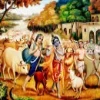The Vrat (fast) of Sixteen Mondays dedicated to Lord Shiva is considered highly auspicious in Hinduism. This fast is primarily observed for fulfilling desires, removing obstacles related to marriage, and attaining happiness and prosperity in life.
Importance of the Sixteen Monday Vrat
Monday is considered dear to Lord Shiva. Those who observe this fast with devotion and according to the rules have all their wishes fulfilled by the grace of Shiva. The effects of this fast remove obstacles in marriage, bring peace and harmony to the family, and provide mental peace. Unmarried girls observe this fast to find a suitable groom, and married women observe it for marital happiness.Procedure for the Sixteen Monday Vrat
- On the day of the fast, take a bath in the morning, wear clean clothes, and prepare for the worship of Lord Shiva.
- Perform Abhishek (ritual bathing) of the Shivling with Ganges water, milk, honey, curd, and water.
- Offer Bilva leaves, Datura flowers, white flowers, and fruits.
- Chant the mantra “Om Namah Shivaya” and light a lamp.
- Listen to the story of the fast and recite the Shiva Chalisa or Shiva Aarti.
- The fast is observed for 16 consecutive Mondays. It is considered auspicious to consume only fruits and avoid salt in the meal.
Story of the Sixteen Monday Vrat
Once, Lord Shiva and Goddess Parvati, while traveling through the mortal world, arrived in the city of Amravati. The king of that city had built a temple dedicated to Shiva. Lord Shiva stayed there. One day, Parvati said to Shiva, "Lord, let us play a game of dice today." The game began, and at that moment, the priest came to perform the puja (worship). Parvati asked, "Priest, tell me, who will win?" He replied, "Lord Shiva," but in the end, Parvati won. Because of his false statement, Parvati cursed the priest, and he became a leper. Some time later, some Apsaras (celestial nymphs) came for worship and asked the priest the reason for his leprosy. The priest recounted everything. The Apsaras said, "Priest, observe the vow of sixteen Mondays. Lord Shiva will alleviate your suffering." The priest eagerly asked about the procedure for the vow. The Apsaras replied, "On Monday, observe the fast. After the evening prayers, prepare a sweet dish (churma) from half a seer of wheat flour and make three clay idols. Worship them with ghee, jaggery, lamps, offerings, and bel leaves. Afterwards, offer the churma to Lord Shiva, distribute it as prasad (blessed food), and then partake of it yourself. Follow this procedure for sixteen Mondays, and on the seventeenth Monday, prepare churma from five seers of wheat flour, offer it as bhog (offering), and distribute it. Then, partake of the prasad with your family. By doing this, Lord Shiva will fulfill your desires." Saying this, the Apsaras returned to heaven. The priest, having observed the vow as prescribed, was cured of his illness and resumed his worship. After some days, Shiva and Parvati returned. Seeing the priest in good health, Parvati asked the reason for his recovery. According to the priest's account, Parvati also observed the vow, and as a result, the displeased Kartikeya became obedient to his mother. Kartikeya also asked Parvati why his mind was drawn to her feet. Parvati explained the same vow. Kartikeya also observed the vow, and as a result, he was reunited with his estranged friend. The friend also inquired about the reason. Upon being told, he observed the vow as prescribed with the desire for marriage. Consequently, he went abroad, where a king's daughter's swayamvara (self-choice marriage ceremony) was taking place. The king's vow was that his daughter would marry whomever the elephant garlanded. This Brahmin also sat aside, wishing to witness the swayamvara. The elephant garlanded this Brahmin youth. The marriage was celebrated with great pomp, and thereafter, they lived happily. One day, the princess asked, "Lord! What virtuous deed did you perform that the elephant chose you, leaving aside the princes?" The Brahmin explained the vow of sixteen Mondays in detail. The princess observed the vow for the birth of a virtuous son and obtained a son endowed with all good qualities. When the son grew up, he asked, "Mother! By what virtuous deed did you obtain me?" The princess explained the vow of sixteen Mondays in detail. The son began observing the vow with the desire for kingship. At that very moment, the king's messengers arrived and chose him for the princess. The marriage was happily solemnized, and upon the king's death, the Brahmin youth ascended the throne. He continued to observe this vow. One day, he asked his wife to take the worship materials to the Shiva temple, but she sent them through her maids. When the king finished the worship, a divine voice was heard saying, "Dismiss this wife, otherwise she will ruin you." Obeying the Lord's command, he banished the queen. The queen, cursing her fate, went to an old woman in the city. Seeing her plight, the old woman placed a bundle of yarn on her head and sent her to the market. On the way, a storm arose, and the bundle blew away. The old woman scolded her and chased her away. From there, she went to an oil merchant's house, but all the vessels there cracked, and he also drove her away. When she went to the river to drink water, the river dried up. When she reached a lake, as soon as her hand touched the water, insects appeared in it. The tree under which she went to rest after drinking that water would wither. Seeing the condition of the forest and the lake, the cowherds took her to the temple priest. Seeing this, the priest understood that this noble woman was afflicted by misfortune. Reassuring her, he said, "Daughter! Stay here with me, don't worry about anything." The queen began to live in the ashram, but whatever she touched would become infested with insects. Distressed, the priest asked, "Daughter! By offending which deity have you come to this state?" The queen replied, "I disobeyed my husband's command and did not go to worship Lord Shiva." The priest prayed to Lord Shiva. The priest said, "Daughter! Observe the sixteen Monday fast." The queen completed the fast according to the prescribed rituals. Due to the effect of the fast, the king remembered the queen and sent messengers to search for her. Seeing the queen in the ashram, the messengers informed the king of her whereabouts. The king went and said to the priest, "Maharaj! This is my wife. I had abandoned her because Lord Shiva was displeased with her. Now, by the grace of Lord Shiva, I have come to take her back. Please give her permission to leave." The priest granted permission. The king and queen returned to the city. The city dwellers decorated the city, and musical instruments played. Auspicious chants were recited. By the grace of Lord Shiva, the king and queen lived happily together, observing the sixteen Monday fast every year. In the end, they attained Shiva's abode. Similarly, whoever observes the sixteen Monday fast with devotion and according to the prescribed rituals and listens to the story, all their desires are fulfilled, and in the end, they attain Shiva's abode. ॥ Bolo shivashnkar bhole naath kee jay ॥Practices to Follow During the Vrat (Fast)
- On Monday, perform Abhishekam (ritual bathing) of the Shivling with raw milk and water.
- Chant "Om Namah Shivaya" 108 times.
- Wear white or light-colored clothes.
- Donate food or milk to a poor person.
- Place a picture of Shiva and Parvati in the north direction of your home.
Auspicious Results of the Vrat
- All obstacles in marriage are removed.
- Love and devotion between husband and wife increase.
- One attains wealth, fame, and mental peace.
- All the devotee's endeavors are successful, and stability comes into their life.
Frequently Asked Questions (FAQ)
Is the Sixteen Mondays Vrat only for women?
No, this vrat can be observed by both men and women. Lord Shiva is compassionate towards all devotees.
What should be eaten during the vrat?
Eat fruits or food without salt. Observe the vrat with complete faith and self-control.
Can the vrat be started on any Monday?
Yes, you can start on any auspicious Monday, but the Mondays of the month of Shravan are considered especially auspicious.
May Shiva's grace always be upon you. Remember Shiva's name every Monday and attain peace and happiness in life.







